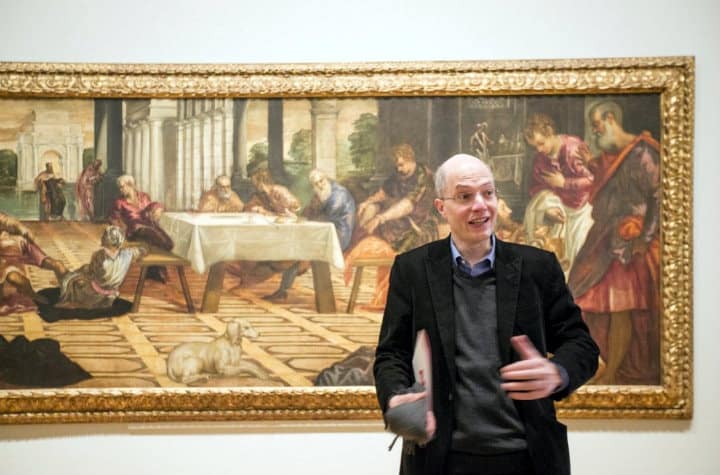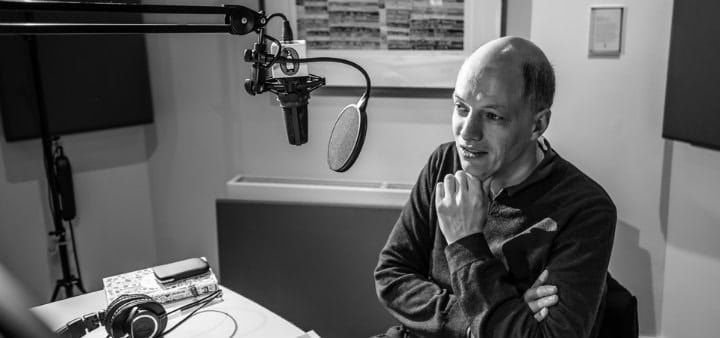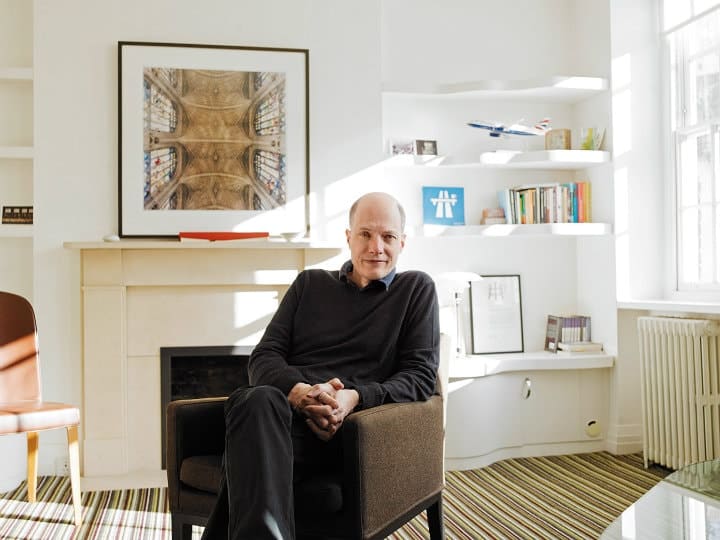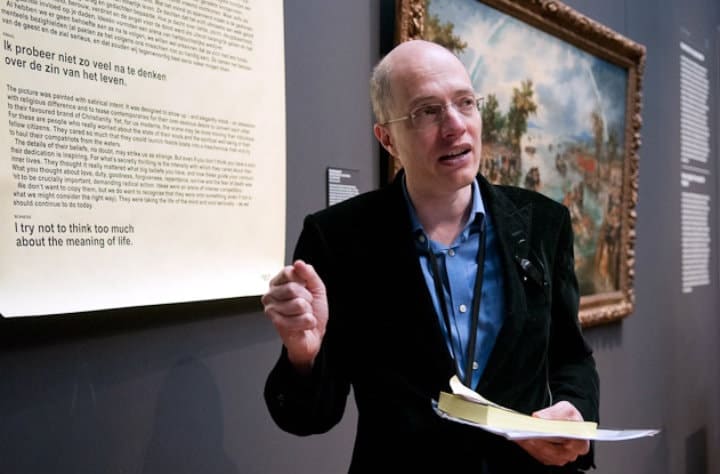
Alain de Botton’s forte is bringing philosophy to the masses and the ability to translate sophisticated ideas into simple language.
Pop philosophy is in high demand as our attention spans dwindle and we’re hardly able to pay attention to anything longer than an Instagram story. Casual readers aren’t interested in analyzing the works of Hegel, Nietzsche, or even Orwell. But if their ponderous volumes are presented in the form of a five-minute video, we may try them. Botton is right in insisting that we should bring philosophy to wider audiences. He certainly did it with books such as The Art of Travel or Art as Therapy. If only online users swapped their Netflix binges for learning useful ideas, we might move forward as a society. Ideas change the world. Below, you’ll find ten of Botton’s most useful ones along with quotes from his books.
10 Useful Ideas From Alain de Botton:
1. You will almost certainly marry the wrong person
Botton’s NYT article on the subject of marriage was spot on. Instead of idealizing the institution, we should face the fact that humans suck at monogamy. Marrying a person creates a legal obligation, and it paradoxically diminishes the motivation for carrying our partner. They’re “ours” after all. Before saying “yes”, we should explore the craziness of our partners on all fronts, try to accept it, and realize that it’s going to take work to make the marriage work. “Marriage: a hopeful, generous, infinitely kind gamble taken by two people who don’t know yet who they are or who the other might be, binding themselves to a future they cannot conceive of and have carefully omitted to investigate.”
2. You might be better off traveling alone
Exploring the globe alone is not just for introverts. Keeping the company of friends and loved ones is a safer but not necessarily more satisfying option because instead of losing ourselves in the whirlwind of the unknown, we play along and settle for our comfort zones. This depends on our travel partners, of course. But I imagine I wouldn’t meet the blind man in the Medina or explore the forgotten palace in Fez if not for the ambiance of familiar loneliness. “It seemed an advantage to be traveling alone. Our responses to the world are crucially molded by the company we keep, for we temper our curiosity to fit in with the expectations of others…”
3. Everyone’s crazy
Yossarian, the main character from Catch-22 was right – everyone is crazy. But people should be normal! They appear normal at a glance. But it’s only because we don’t know them enough. After a few days or months, we realize they behave in very peculiar ways. The harmful way sometimes. Inexplicable ways at others. And we are crazy as well, but we often cannot admit it. The cure, Botton says, is the acceptance of this all-pervasive craziness. “Maturity: knowing where you’re crazy, trying to warn others of the fact, and striving to keep yourself under control.”
4. Cherish your desires
Passion and desire are the lifeblood of the Good Life. Notice that desire is stronger than the actual “possession” of love or the achievement of our goals. That’s why carpe diem is such good advice. When we strive towards a goal and pursue it every day, it brings meaning to our lives. When we finally achieve the object of our desire we ask the famed “Is this all there is” question. This is because the enjoyment is in the process, not in the goal itself. Alain de Botton is also a realist in the matters of love. Today we sneer at Dante hanging out at the Santa Trinita bridge, falling for Beatrice at first sight, and then idealizing her for years before even addressing her. But in Botton’s eyes, he knew what he was doing because if he approached her, she would possibly turn out to be a hag. “Romances are never as pure as those we imagine during long train journeys, as we secretly contemplate a beautiful person who is gazing out of the window – a perfect love story interrupted only when the beloved looks back into the carriage and starts up a dull conversation about the excessive price of the on-board sandwiches with a neighbor or blows her nose aggressively into a handkerchief.”
5. Don’t live together with your partner
In a healthy relationship, there might be a push to cohabit in a nice cozy nest that will make everything so much easier. You could share the bills, and you would meet your beloved every day after work. But it doesn’t always work this way. The habit diminishes the experience (it doesn’t matter if it’s a place, a thing, or a person). Living together, while practical, may lead to the end of love because everything might become so predictable. “It was no longer her absence that wounded me, but my growing indifference to it. Forgetting, however calming, was also a reminder of infidelity to what I had at one time held so dear.”
6. Forget about the romantic paradigm of love
According to Botton, romanticism ruined love. Over millennia, there have been many approaches to what is acceptable and what’s forbidden in the Garden of Love. We’re still under the sway of Romanticism (which started in the middle of the XVII century). Romanticism idealizes marriage, unites love and sex, promotes love as the end of all suffering, and believes that choosing a partner should be always a matter of feelings – never the reason. This approach created many problems in how we view romantic relationships. To remedy that, Botton suggests embracing “romantic realism”. “Her lie was symptomatic of a certain pride she took in mocking the romantic, in being unsentimental, matter-of-fact, stoic; yet at heart, she was the opposite: idealistic, dreamy, giving, and deeply attached to everything she liked verbally to dismiss as “mushy.”
7. Let’s re-arrange the exhibits in our museums
This idea may seem bizarre, but only because it challenges the status quo. At a closer look, isn’t it strange that in places known for their artistry and vivid creativity, we stick to such rigid rules when arranging exhibits? Of course, it’s easier for art students if they can just go to the Renaissance hall and find what they need. But what if we changed it completely and ignored the chronology? What if you could step into the hall of Betrayal or the Corridor of Tender Love with works from all ages and places? “At present, art museums are typically set out under headings such as The Nineteenth Century or The Northern Italian School. But this may not do very much for us in our deep selves. A more fertile indexing system would group artworks from across genres and eras according to our inner needs.”
8. Architecture and city design are crucial to the well-being of the citizens
Have you heard about the Broken Windows Theory? It states that if you allow broken windows in a neighborhood, the next thing on the way is graffiti, litter, and then crime. It proves that the environment affects us in all kinds of ways. Walking around Montmartre in Paris makes you feel like Monet. Walking around Lavapies in Madrid makes you feel like an anarchist. Let’s acknowledge that and be smart about how we plan our cities. Botton describes this nicely in Architecture of Happiness. “We used to build temples, and museums are about as close as secular society dares to go in facing up to the idea that a good building can change your life (and a bad one ruin it).”
9. The books help you discover yourself
According to Botton, with books, timing is everything. Interestingly, he seems to have a similar opinion about places. If you’re not ready for them, you will not understand and they won’t have a significant effect on you. By reading books and going to places we don’t learn about them, but about ourselves. Our innermost thoughts become verbalized. Someone already thought about the same thing that was nagging us inside. And now it’s in front of us, materialized. Hugo’s quote about the idea whose time has come works on a personal level as well. “Most of what makes a book ‘good’ is that we are reading it at the right moment for us.”
10. There is no such thing as a work-life balance
This point is hard to grasp, but it is well understood by philosophers and entrepreneurs alike. Slavoj Zizek once said that “Happiness for me is a very conformist category”. What he meant was that if you want to achieve something, you should be ready to suffer. The culture somehow tries to convince us you can be the best at everything – like Tony Stark or the guy from Limitless. But in reality, it all comes down to sacrifice. It’s hard to run a multi-million dollar company and be a concert pianist at the same time. “There is no such thing as work-life balance. Everything worth fighting for unbalances your life.” These are only some of Alain de Botton’s ideas I’ve found useful. His books and especially his YouTube channel The School of Life are full of philosophical gems that’ll help you get through the day and teach you how to deal with some common life problems. But whatever you do, never settle for average. Botton often addresses the average person but doesn’t settle for the average. You are extraordinary.
Get your free PDF report: Download your guide to 100+ AI marketing tools and learn how to thrive as a marketer in the digital era.
Hey there, welcome to my blog! I'm a full-time entrepreneur building two companies, a digital marketer, and a content creator with 10+ years of experience. I started RafalReyzer.com to provide you with great tools and strategies you can use to become a proficient digital marketer and achieve freedom through online creativity. My site is a one-stop shop for digital marketers, and content enthusiasts who want to be independent, earn more money, and create beautiful things. Explore my journey here, and don't miss out on my AI Marketing Mastery online course.





